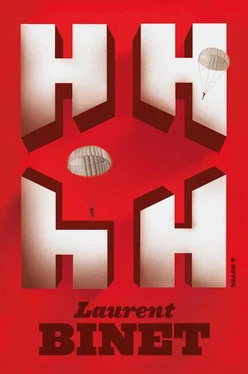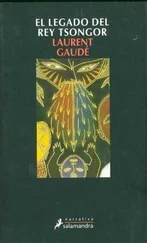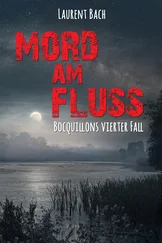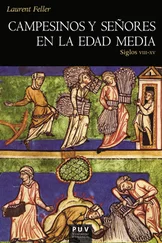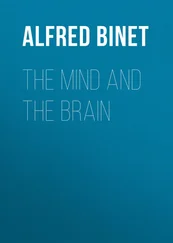But that doesn’t really matter. A black Mercedes is sliding along the road like a snake—from now on, that’s the only thing that matters. I have never felt so close to my story.
Prague.
I feel metal rubbing against leather. And that anxiety rising inside the three men, and the calmness they display. This is not the manly self-confidence of those who know they are going to die. Even though our heroes are prepared for death, the possibility of escaping alive has never been dismissed. And this makes their psychological tension even more unbearable. I don’t know what incredible power over their nerves they must possess in order to remain in control. I make a quick inventory of all the times in my life when I’ve had to show sangfroid. What a joke! On each occasion, the stakes were tiny: a broken leg, a night at work, a rejection. There you go, that’s pretty much all I’ve ever risked in the course of my pathetic existence. How could I convey even the tiniest idea of what those three men lived through?
But it’s too late for this kind of mood. After all, I, too, have responsibilities and I must face up to them. I have to stay in the slipstream of the Mercedes. Listen to the sounds of life on this May morning. Feel the wind of history as it begins, gently, to blow. Watch as all the actors in this drama—from the dawn of time in the twelfth century, up until the present and Natacha—file past in my mind. And then retain only five names: Heydrich, Klein, Valčík, Kubiš, and Gabčík.
In the narrowing flow of this story, those five are about to reach the waterfall.
It’s the afternoon of May 26, 1942. Heydrich is about to attend the opening concert of Prague’s weeklong music festival, featuring music composed by his father. A few hours before the first notes are played, he holds a press conference for the Protectorate’s journalists:
“I am obliged to observe that incivilities, or what one might call indelicacies, if not examples of outright rudeness, particularly toward Germans, are once again on the rise. You are well aware, gentlemen, that I am generous and that I encourage all plans for reform. But you also know that, however patient I may be, I will not hesitate to strike with the most extreme harshness if I get the feeling that people consider the Reich to be weak, and if they mistake the goodness of my heart for weakness.”
I am a child. This speech is interesting on more than one level. It shows Heydrich at the height of his powers, utterly self-assured, expressing himself like the enlightened despot he imagines himself to be—the viceroy proud of his governance, the master firm but fair, as if the title of Protector were printed upon his conscience; as if Heydrich really considered himself a “protector.” Proud of his sharp political sense, Heydrich wields the carrot and the stick in all his speeches. It is typical of totalitarian rhetoric that Heydrich the Hangman, Heydrich the Butcher, should ingenuously tell us how generous and progressive he is, wielding his irony as knowingly and insolently as the wiliest of tyrants. But it is none of this that stands out for me in this speech. What stands out is his use of the term “incivilities.”
On the evening of May 26, Libena goes to see Gabčík, her fiancé. But he has gone out to calm his nerves because he can no longer stand the prevarications of those Resistance members who fear the consequences of the assassination attempt. So it’s Kubiš who lets her in. She’s brought cigarettes. After a brief hesitation, she gives them to Kubiš. “But, Jeniček [this is the affectionate diminutive of Jan, which means that she knows his real name], you mustn’t smoke them all!” And the young girl leaves, not knowing whether she will ever see her fiancé again.
I think all men for whom life is not an endless series of misfortunes are bound to experience, at least once, a moment they consider, rightly or wrongly, to be the apotheosis of their existence. For Heydrich, this moment has arrived. And by one of those delicious ironies that forge our destinies, it occurs the day before his assassination.
When Heydrich enters the chapel of Wallenstein Palace, all the guests rise. Ceremonious but smiling, his eyes lifted, he walks on the red carpet that leads him to his place in the front row. His wife, Lina, accompanies him. She is pregnant and radiant, wearing a dark dress. Everyone’s eyes turn their way and all the men in uniform make the Nazi salute as they pass. Heydrich is overcome by the majesty of the place—I can read it in his eyes. He proudly contemplates the altar, surmounted by sumptuous bas-reliefs, and the space below it where the musicians will soon take their seats.
This evening he remembers (if he’d ever forgotten) that music is his life. Music has been with him since his birth. It has never left him. Within Heydrich, the artist has always fought against the man of action. His career has been decided by the course of the world. But music always lives inside him—it will be there until his death.
Each guest holds the evening’s program. Here, he can read the bad prose that the interim Protector has seen fit to compose as an introduction:
Music is the creative language of those who are artists and music lovers, the means of expressing their interior life. In difficult times, it brings relief to he who listens, and in times of greatness and fighting, it encourages him. But music is, above all, the great expression of the German race’s cultural productivity. In this sense, the festival of music in Prague is a contribution to the excellence of the present, conceived as the foundation of a vigorous musical life in this region at the heart of the Reich for years to come.
Heydrich does not write as well as he plays the violin, but he doesn’t care about that—because music is the true language of artistic souls.
The program is exceptional. He has brought over the greatest musicians to play the greatest Germanic music. Beethoven, Handel, even Mozart… and probably, for once, no Wagner. (I can’t be certain, because I haven’t been able to get hold of the complete program.) But it is when he hears the first notes of Bruno Heydrich’s Concerto for Piano in C Minor—played by former pupils of the Halle Conservatory, accompanied by a famous virtuoso pianist flown in expressly—that Heydrich, letting the music flow through him like a stream of well-being, experiences his feeling of apotheosis. I would be curious to hear this work. When Heydrich applauds at the end, I can read on his face the arrogant daydream of all great, self-centered megalomaniacs. Heydrich tastes his personal triumph through the posthumous triumph of his father. But triumph and apotheosis are not exactly the same thing.
Gabčík is back. Neither he nor Kubiš smokes in the apartment, because they don’t want to put out the family they’re staying with—and also because they don’t want to arouse the neighbors’ suspicions.
Through the window, the silhouette of the castle stands out against the night. Kubiš, lost in contemplation of its imposing mass, thinks aloud: “I wonder what it will be like there, this time tomorrow…” His hostess, Mrs. Ogounova, asks: “What is supposed to happen?” Gabčík is the one who replies: “Nothing, Mrs. Ogounova.”
The morning of May 27, Gabčík and Kubiš get ready to leave earlier than usual. The Ogoun family’s young son is doing last-minute revision because today is the day of his final exam and he’s nervous. Kubiš tells him: “Be calm, Luboš. You’ll pass it. You have to pass it. And tonight, we’ll all celebrate your success together…”
Читать дальше
